Why the FTC antitrust lawsuit against Amazon is so consequential
While it's not the first case the federal agency brought against the company, it might be the biggest challenge yet

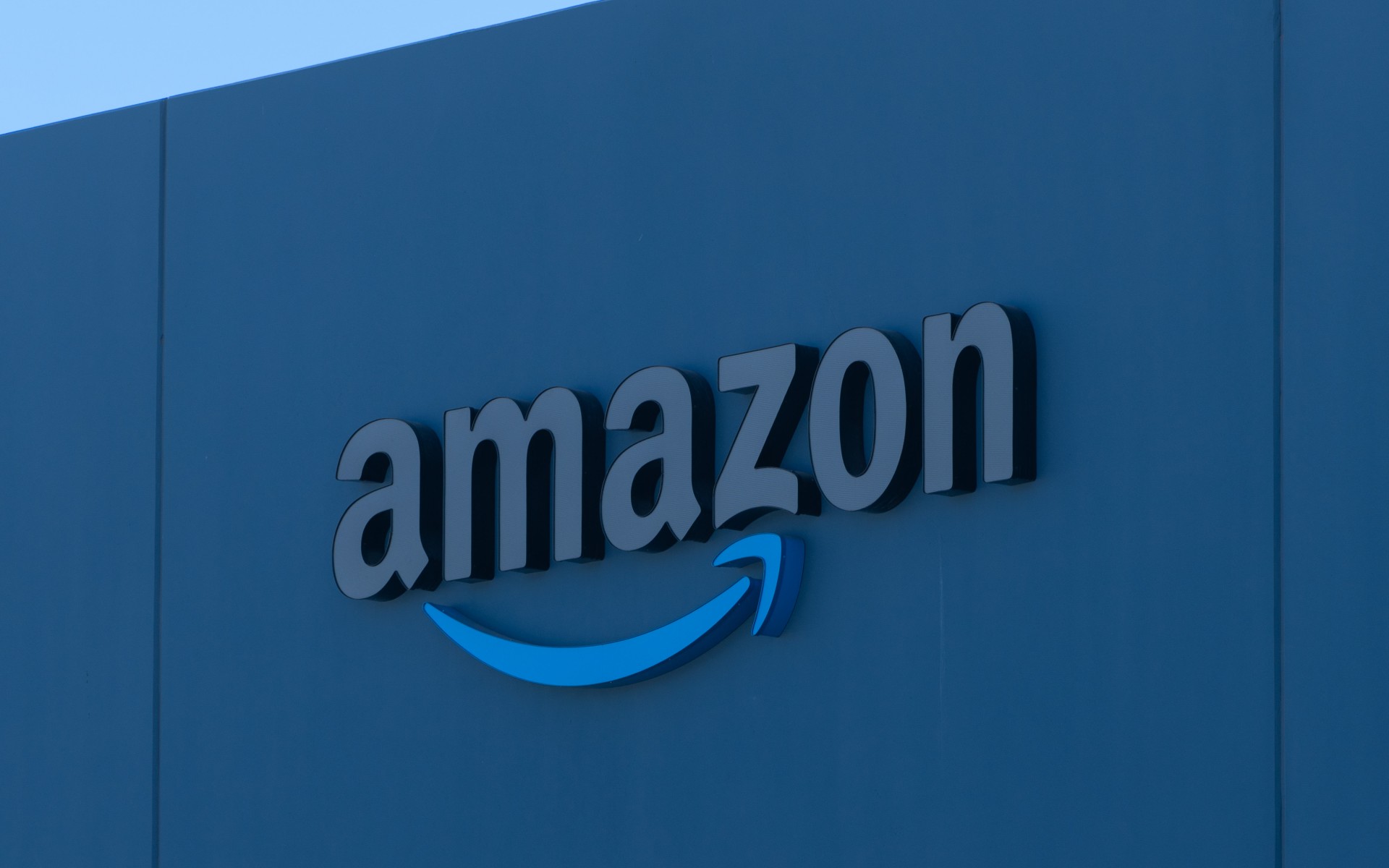
A free daily email with the biggest news stories of the day – and the best features from TheWeek.com
You are now subscribed
Your newsletter sign-up was successful
The U.S. Federal Trade Commission and 17 states filled a lawsuit against Amazon on Tuesday, accusing the company of monopolistic practices and "setting up a long-awaited antitrust fight with the e-commerce giant that could alter the way Americans shop for everything from toilet paper to electronics online," The New York Times reported. The 172-page lawsuit accused the company of protecting its dominance over online retail by promoting its products at the expense of third-party businesses relying on its distribution. This led to “artificially higher prices” for consumers because merchants were blocked from selling their products elsewhere.
Amazon is “squarely focused on preventing anyone else from gaining that same critical mass of customers,” FTC Chair Lina Khan told reporters after the suit was filed, per CNN. The complaint reflects "the tactics that Amazon has used to suffocate rivals, deprive them of oxygen, and really leave a stunted landscape in its wake.”
David Zapolsky, Amazon’s general counsel, said in a statement that the FTC “is wrong on the facts and the law” with the lawsuit, portions of which were heavily redacted. The complaint shows that the government agency's “focus has radically departed from its mission of protecting consumers and competition,” he said. “If the FTC gets its way, the result would be fewer products to choose from, higher prices, slower deliveries for consumers, and reduced options for small businesses — the opposite of what antitrust law is designed to do,” he warned. Regardless of the outcome, it seems likely that the FTC is determined to take on Big Tech, and the Amazon case could have huge repercussions.
The Week
Escape your echo chamber. Get the facts behind the news, plus analysis from multiple perspectives.

Sign up for The Week's Free Newsletters
From our morning news briefing to a weekly Good News Newsletter, get the best of The Week delivered directly to your inbox.
From our morning news briefing to a weekly Good News Newsletter, get the best of The Week delivered directly to your inbox.
The 'sharpest attack' against Amazon yet.
The FTC's "groundbreaking" antitrust lawsuit "marks the government’s sharpest attack yet against Amazon," Brian Fung wrote for CNN. Amazon has faced heavy scrutiny from the agency lately, including a suit filed in June alleging that the company tricked millions of users into signing up for Amazon Prime. However, "the latest suit against Amazon may rank as the most significant of all" since it "drives at the heart of Amazon’s e-commerce business and focuses on some of the most persistent criticisms of the company," Fung noted.
The case will "doubtless draw fresh criticism" about Khan's "supposed overreach," but Amazon "is precisely the kind of company that Congress had in mind in enacting America’s many antitrust laws," Cory Doctorow, author of “The Internet Con: How to Seize the Means of Computation,” wrote in an op-ed for the Times. Tech barons on large platforms like Amazon, Google, and Meta "can deploy anticompetitive, deceptive, and unfair tactics with the agility and speed of a digital system," Doctorow pointed out. "And Amazon is the apex predator of our platform era."
The government faces an uphill battle
Legal experts told Reuters that the FTC "faces a high bar in trying to show that U.S. consumers would be better off in a world without Amazon's policies in place," the outlet reported. Antitrust attorney David Balto, a former FTC policy director, compared the FTC's fight to trying to climb Washington state's Mt. Rainier in sneakers. "You know, it's conceivable — you could get to the top — but it's 20,000 feet, and it's going to be really cold," he told Reuters.
There's also "no guarantee the FTC will win its case," considering its track record taking on high-profile companies, including its failure to block Microsoft's acquisition of Activision Blizzard, Adam Clark wrote for Barron's. "Even if the FTC does win the lawsuit and presses significant structural changes at Amazon, that could actually unlock some value for shareholders." If the FTC doesn't push for a breakup of Amazon, "the company could face a series of other antitrust measures" that could be "more harmful in the long term than a clean breakup now," Clark posited. "A breakup could prove to be the less painful option."
A free daily email with the biggest news stories of the day – and the best features from TheWeek.com
The FTC's charge that Amazon is a monopolist "doesn’t square with the fact that the company still accounts for less than a third of total e-commerce sales in the U.S. over the last four quarters," Dan Gallagher mused in The Wall Street Journal. "Competition is also growing of late instead of diminishing," he added. "Amazon likely will have to tread more carefully in the future, but it will still be Amazon."
Theara Coleman has worked as a staff writer at The Week since September 2022. She frequently writes about technology, education, literature and general news. She was previously a contributing writer and assistant editor at Honeysuckle Magazine, where she covered racial politics and cannabis industry news.
-
 Local elections 2026: where are they and who is expected to win?
Local elections 2026: where are they and who is expected to win?The Explainer Labour is braced for heavy losses and U-turn on postponing some council elections hasn’t helped the party’s prospects
-
 6 of the world’s most accessible destinations
6 of the world’s most accessible destinationsThe Week Recommends Experience all of Berlin, Singapore and Sydney
-
 How the FCC’s ‘equal time’ rule works
How the FCC’s ‘equal time’ rule worksIn the Spotlight The law is at the heart of the Colbert-CBS conflict
-
 Is the job market frozen or faltering?
Is the job market frozen or faltering?Today's Big Question Layoffs raise alarms while young workers eye law school
-
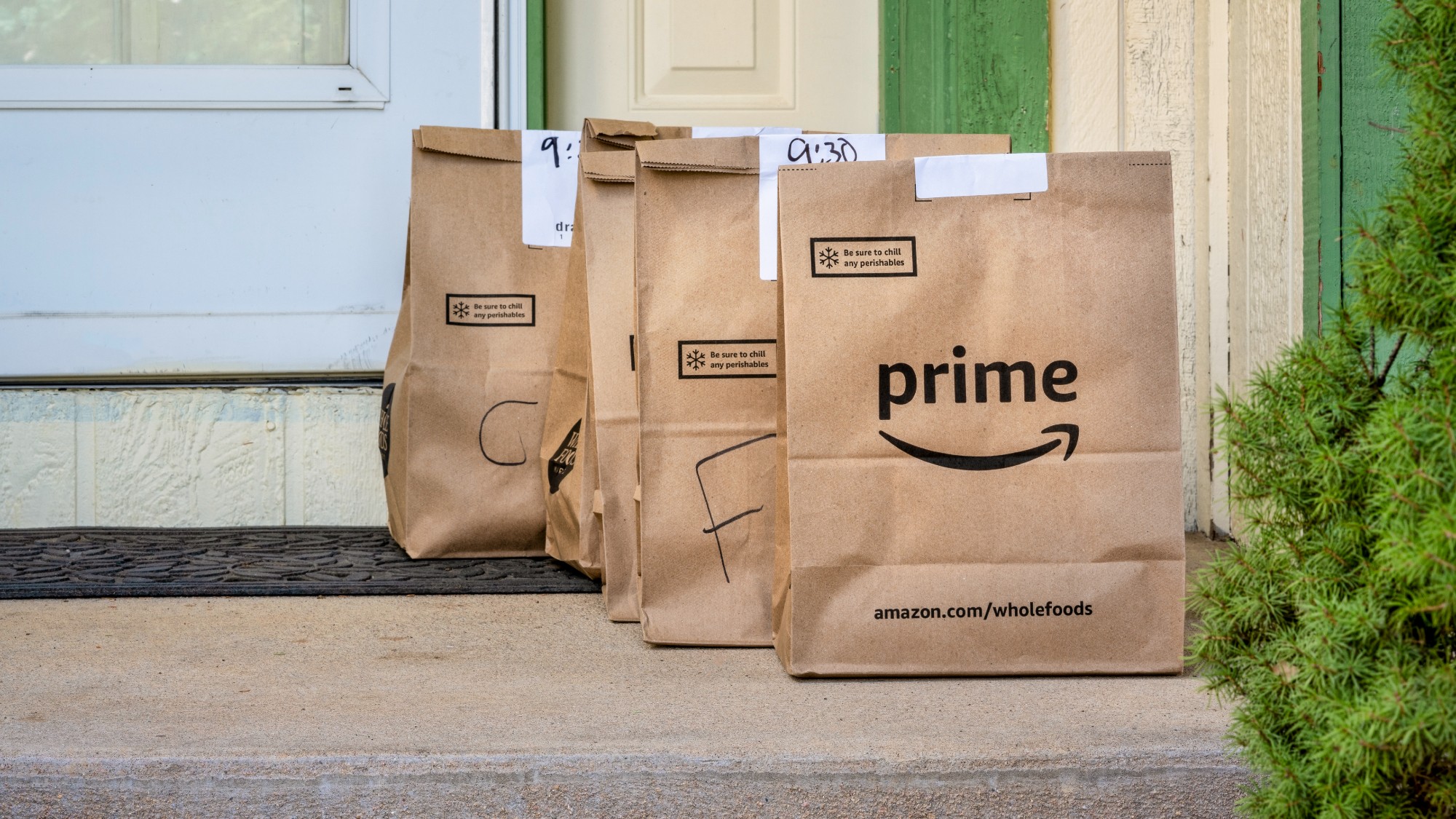 Is Amazon about to take over the grocery business?
Is Amazon about to take over the grocery business?Today's Big Question Expanded delivery will present a challenge to Walmart and Kroger
-
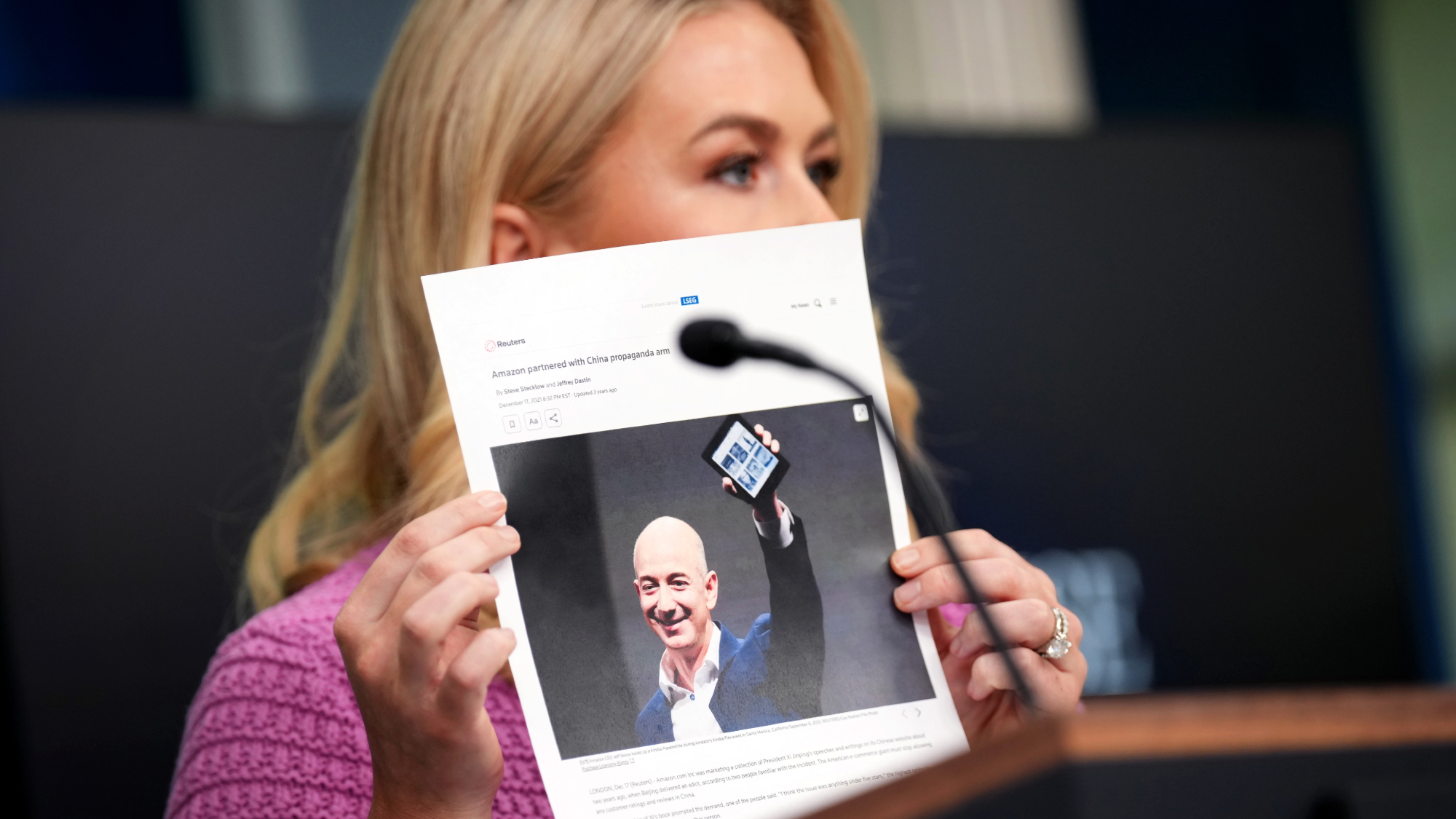 Trump calls Amazon's Bezos over tariff display
Trump calls Amazon's Bezos over tariff displaySpeed Read The president was not happy with reports that Amazon would list the added cost from tariffs alongside product prices
-
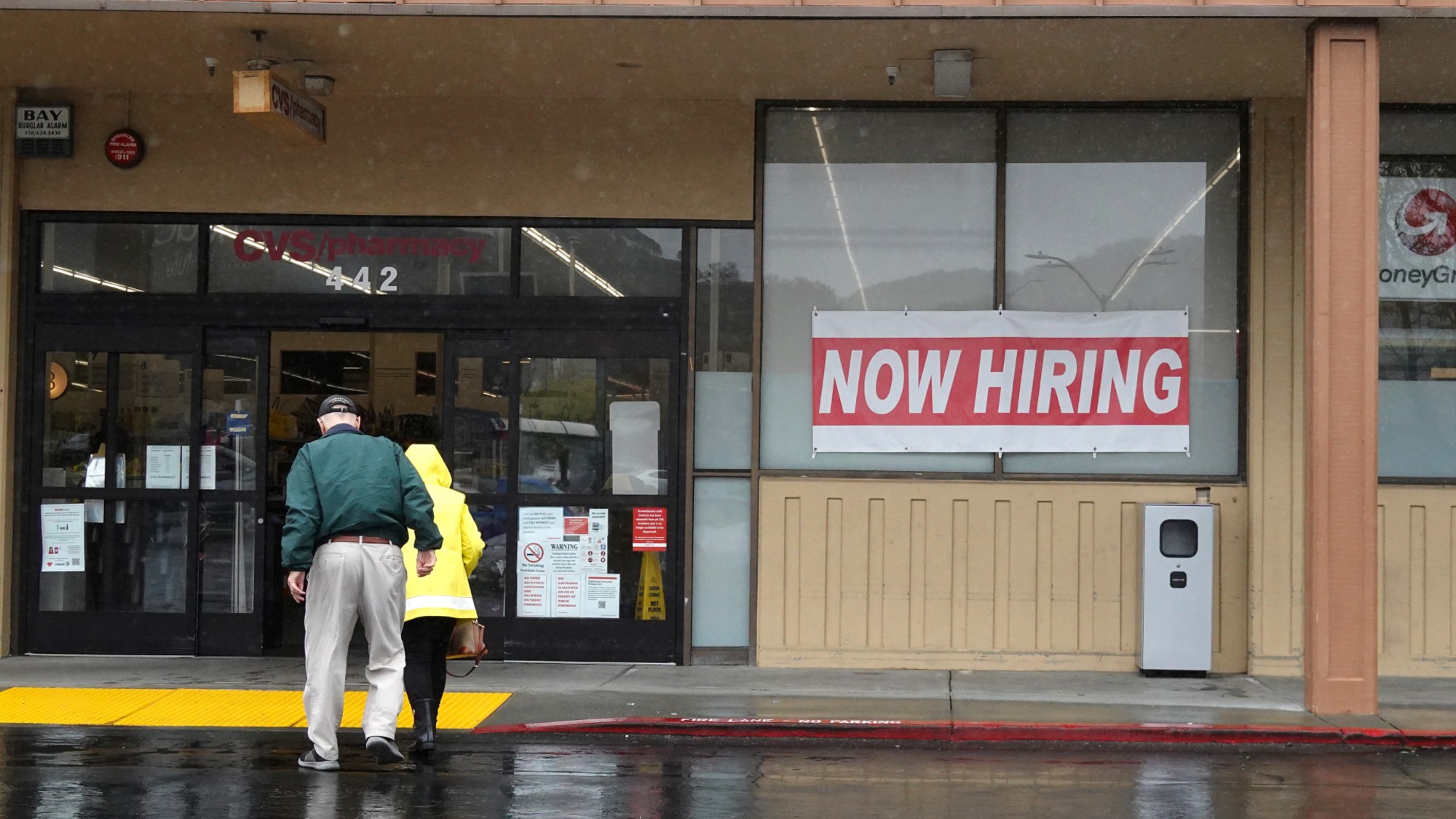 What is the job market's future after Trump's tariffs?
What is the job market's future after Trump's tariffs?Talking Points Economic analysts are split on what the tariffs could mean for employees
-
 What's Jeff Bezos' net worth?
What's Jeff Bezos' net worth?In Depth The Amazon tycoon and third richest person in the world made his fortune pioneering online retail
-
 Amazon's 'James Bond' deal could mean a new future for 007
Amazon's 'James Bond' deal could mean a new future for 007In the Spotlight The franchise was previously owned by the Broccoli family
-
 Volkswagen on the ropes: a crisis of its own making
Volkswagen on the ropes: a crisis of its own makingTalking Point The EV revolution has 'left VW in the proverbial dust'
-
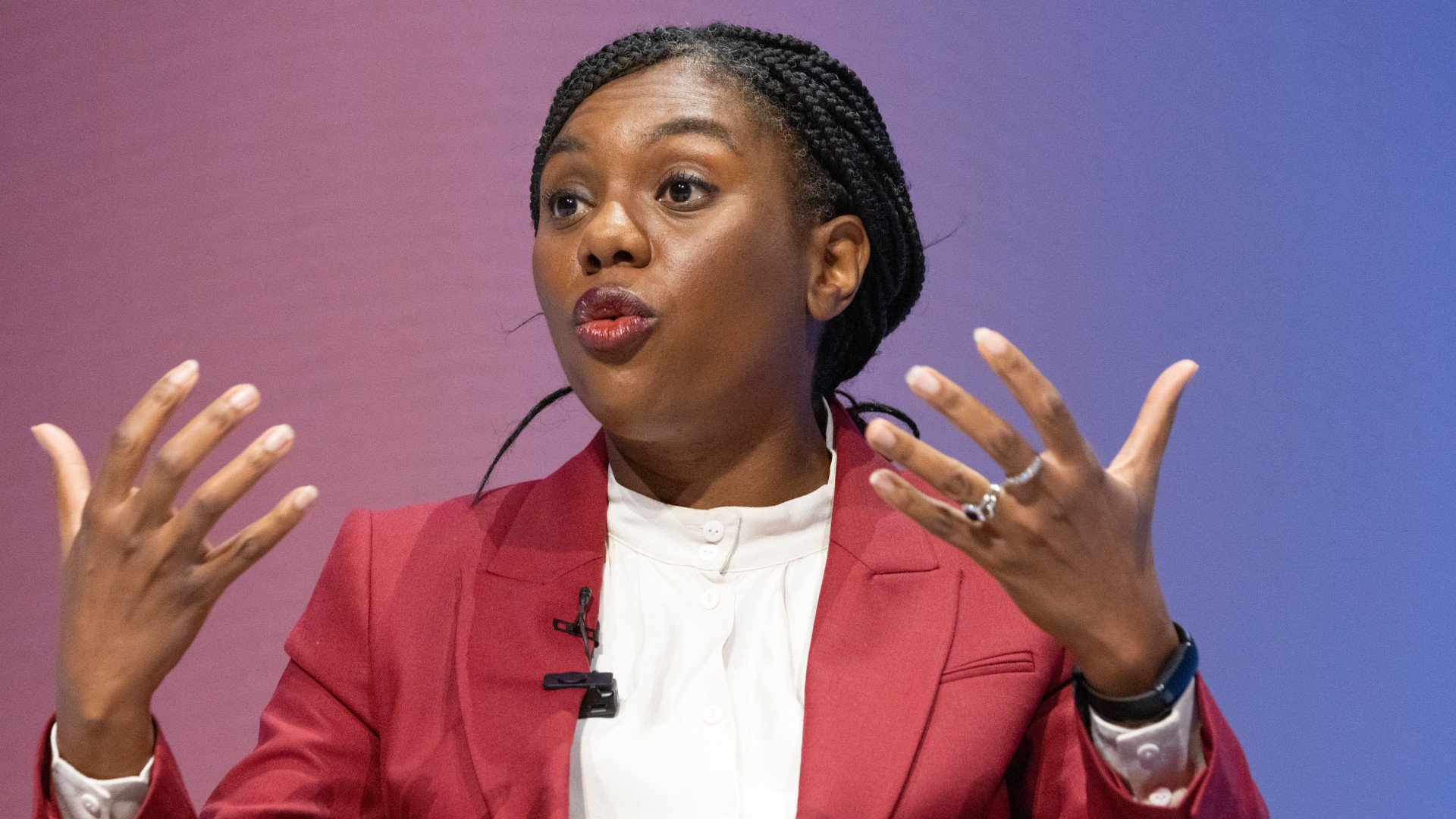 The row over UK maternity pay
The row over UK maternity payTalking Points Tory leadership hopeful Kemi Badenoch implied that taxpayer-funded benefit was 'excessive' and called for 'greater responsibility'
